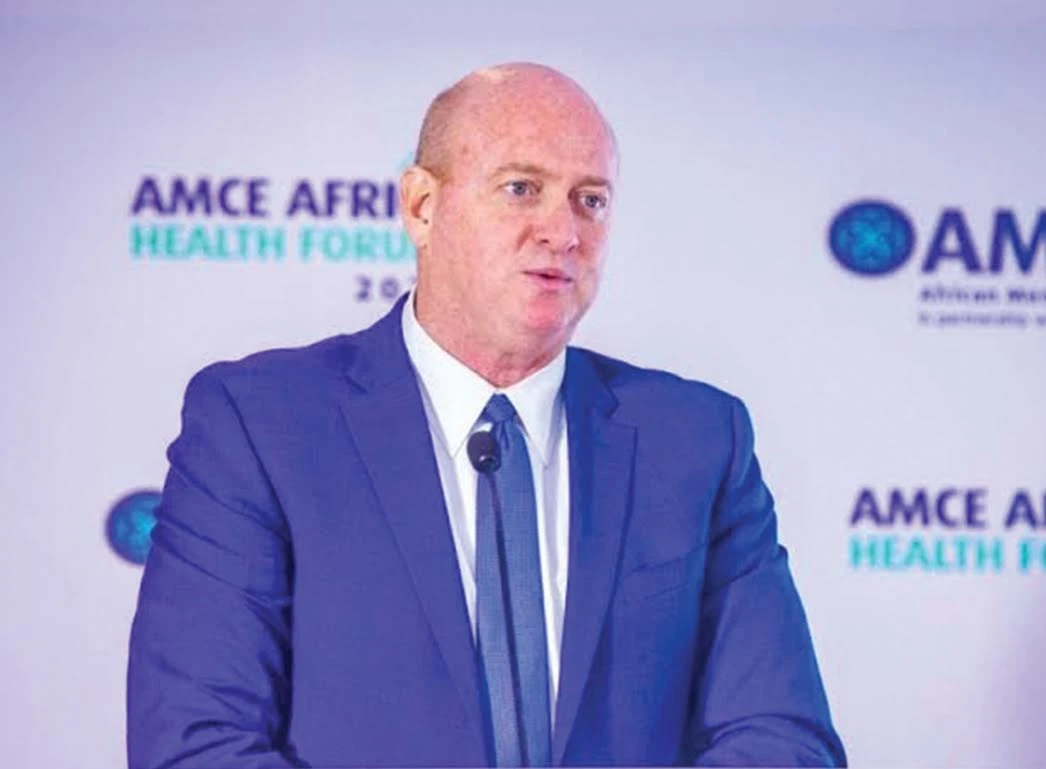 Gbeminiyi Ogunleye
5 days ago
Gbeminiyi Ogunleye
5 days ago
Overview
Bryan Deaver: 500-bed AfriExim-funded Hospital in Abuja will Stimulate Economic Growth
As the world-class hospital- African Medical Centre of Excellence (AMCE) Abuja midwifed by the AfriExim Bank is about to commence operations, the Chief Executive Officer, Dr. Brian Deaver: 500-bed AfriExim-funded Hospital in Abuja will Stimulate Economic Growth, spoke to Onyebuchi Ezigbo about the mission of the organisation to drive medical excellence. He added that the $300 million health facility is intended to offer different levels of innovative healthcare services while lowering costs by building local capacity and reducing our reliance on expensive foreign treatment
AMCE was envisioned to address inadequacies in healthcare facilities in Nigeria and Africa as a whole, how do you hope to achieve this ambitious target?
Africa is currently losing over $1 billion to $2 billion annually due to outbound medical tourism, according to the World Bank and African Union. AMCE was designed to reverse this trend by providing advanced, specialist healthcare services locally. With a 500-bed, multi-specialty hospital and a partnership with King’s College Hospital, London, we are offering services that match global standards, right here in Nigeria. Our focus on oncology, cardiology, hematology, and general medicine is aligned with the region’s highest disease burdens. Our facility also includes West Africa’s first 18 MeV cyclotron, enabling more precise cancer diagnostics. AMCE is a practical African solution to an African healthcare gap.
Nigeria and indeed most African countries are currently battling poverty, with the majority of their citizens not able to access quality healthcare sometimes due to high cost, what impact will AMCE have on the ordinary masses?
More than half of Africa’s 1.3 billion people don’t have access to basic healthcare (WHO), and it’s even worse in rural communities. In Nigeria and many other African countries, poverty makes it hard for most people to afford quality care because of high costs. That’s why AMCE is built on a model of affordable excellence—offering different levels of access while lowering costs by building local capacity and relying less on expensive foreign treatment. To make sure no one gets left behind, we’re setting up the AMCE Foundation to provide support and help create a fairer healthcare system. This means everyone, no matter their background, can get the care they need and deserve. We’re also teaming up with health insurance companies to open up affordable healthcare options for their members—so even more everyday people can benefit from the specialised services AMCE offers. Our goal is to serve over 350,000 patients in the first five years. But it’s not just about medical care—we’re also investing in local supply chains, creating jobs, and training healthcare workers to make healthcare more accessible and affordable for everyone across Africa.
In terms of personnel, what percentage of local content will AMCE maintain, especially at the management level?
As an African Medical Centre of Excellence, AMCE is committed to building a truly continental and global workforce. We are intentionally recruiting top talent not only from Nigeria, including both home-based and diaspora professionals, but also from across Africa, with experts from countries such as Ghana, Egypt, Kenya, and South Africa. In addition, we are bringing in specialised expertise from around the world, including India, to ensure we provide the very best care. This approach goes beyond simply filling positions. It is about creating a centre where African medical professionals can thrive, grow, and lead. For many years, thousands of doctors and nurses have left Africa in search of better opportunities abroad. At AMCE, we are reversing this brain drain by providing world-class infrastructure, advanced training, and clear leadership pathways that make staying or returning an attractive choice and . Thanks to our partnership with King’s College Hospital, our teams will benefit from world-class mentorship and professional development. Most importantly, Nigerians and other African professionals will not just be part of the workforce; they will be leading the management and direction of the Centre.
What is AMCE prepared to give in terms of social responsibility?
At AMCE, social responsibility isn’t an add-on, it’s at the heart of what we do. We’re creating over 3,000 jobs across clinical, administrative, and support functions, opening new opportunities for people across the region. But it goes beyond jobs. We’ve already rolled out several community health initiatives focused on areas that matter most, free health screenings, cancer and cardiovascular checks, blood drives, and targeted outreach on Sickle Cell Anaemia, which remains underfunded despite its high prevalence in Africa. We’re also big believers in buying local. By sourcing from local suppliers and investing in health education, we’re helping to stimulate inclusive economic growth. And as part of our commitment to long-term impact, we’ll be supporting research into diseases that don’t always make global headlines but deeply affect our communities.
Source: Thisdaylive



